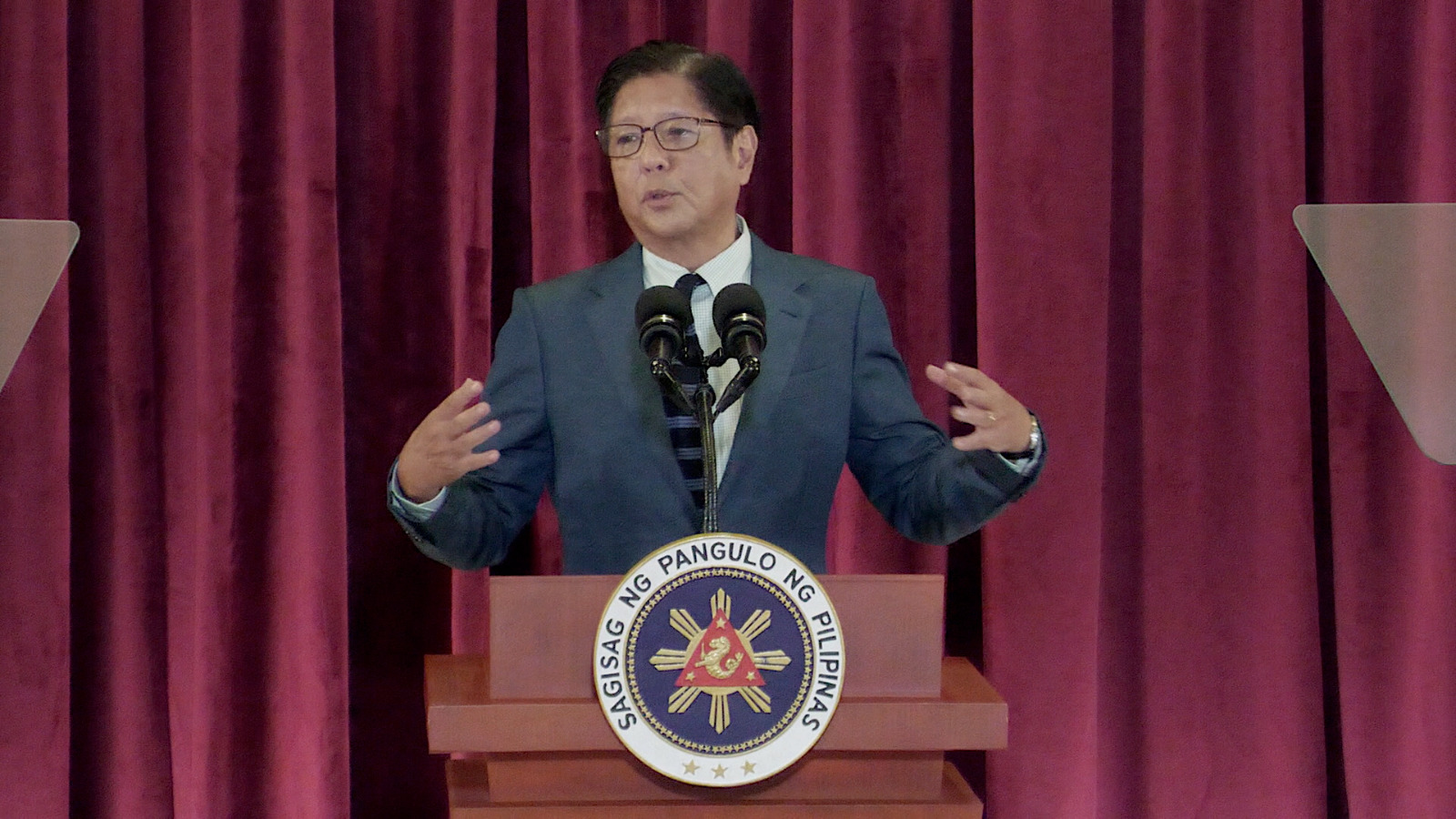Marcos eyes binding South China Sea code of conduct in Asean summit

President Ferdinand Marcos Jr. delivers his speech at Villamor Air Base in Pasay City on May 25, 2025, before his departure for Kuala Lumpur to take part in the 46th Association of Southeast Asian Nations Summit. INQUIRER.net/Ryan Leagogo
MANILA, Philippines — President Ferdinand Marcos Jr. will seize the chance to reiterate his call for the adoption of a legally binding Code of Conduct for the South China Sea (SCS) in the Philippines’ hosting of the Association of Southeast Asian Nations (Asean) Summit next year.
He said this in the final part of the third episode of the PBBM Podcast, titled “Sa Likod ng Sona,” which aired on Friday.
READ: West PH Sea: PCG urges Chinese envoy to explain continued ship presence
“We will certainly try because it is very, very important,” Marcos responded when asked whether he can take bigger and more concrete steps to advance the call for the code of conduct.
“When that happens, it will be clear what the rules are for everyone, not just us. Everyone around the South China Sea can say that—no more of this, no more of that, no more of a collision, no more of building new islands, no more of this, which was the original Code of Conduct,” he also said.
For Marcos, the code of conduct would make things “a bit easier” for countries around the SCS.
“[Y]ou don’t have to worry about what might happen, what might happen. That can’t happen anymore because we’ve agreed—we’ve signed, we’ve agreed that we won’t do that,” he explained.
During a plenary session of the 46th Association of Southeast Asian Nations Summits in Malaysia last May, Marcos also emphasized the need to hasten the adoption of the code of conduct to prevent a major conflict in the disputed South China Sea.
READ: Marcos calls for legally binding South China Sea Code of Conduct
“We underscore the urgent need to accelerate the adoption of a legally binding code of conduct on the South China Sea,” Marcos said.
“This is to safeguard maritime rights, promote stability, and prevent miscalculations at sea,” he added.
Lines of communication are open
In the podcast, Marcos was asked how the Philippines can further assert its rights in the West Philippine Sea when it always resorts to diplomacy, while China, on the other hand, consistently does dangerous maneuvers and uses water cannons in the area.
“We can only control what we do. We cannot control what other countries do,” he responded.
The government also keeps its line of communication open, as there will be no improvement once it is closed.
“Even if sometimes it’s said to be useless. Why bother when nothing’s happening anyway? We have to keep on trying. We have to keep those lines of communication open,” he said.
“You can’t just shut it down like that. If you do that, the situation will only get worse,” he added. /das
For comprehensive coverage, in-depth analysis, visit our special page for West Philippine Sea updates. Stay informed with articles, videos, and expert opinions.


















